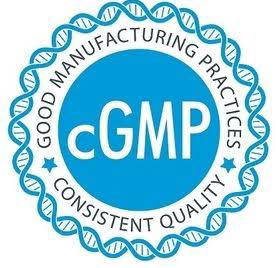Preamble:
In the highly regulated and critical field of pharmaceuticals, ensuring the highest standards of quality is paramount.
Building a culture of quality within the pharmaceutical industry is not only a legal and regulatory requirement but also a strategic imperative for organizations to maintain their reputation, safeguard patient safety, and drive sustainable success.
This article aims to provide a comprehensive guide on how to build up a culture of quality in the pharmaceutical industry, encompassing various key aspects and best practices.
1. Leadership Commitment and Vision:
Building a culture of quality starts at the top. Leadership must demonstrate a strong commitment to quality by establishing a clear vision, values, and expectations.
This involves actively promoting quality as a core organizational principle and integrating it into the company's mission and strategic objectives. By leading by example and fostering a culture of accountability, leaders set the foundation for quality throughout the organization.
2. Regulatory Compliance:
Pharmaceutical companies must adhere to stringent regulations and guidelines to ensure the safety, efficacy, and quality of their products.
Establishing robust quality systems that comply with Good Manufacturing Practices (GMP), Good Clinical Practices (GCP), and other relevant regulatory frameworks is essential. This includes comprehensive documentation, standardized procedures, rigorous training programs, and effective quality control measures.
3. Employee Engagement and Training:
Quality culture can only thrive when employees are engaged, motivated, and equipped with the necessary knowledge and skills.
Organizations should invest in comprehensive training programs to educate employees on quality principles, regulatory requirements, and industry best practices.
By fostering a learning environment and providing ongoing professional development opportunities, companies can empower their workforce to take ownership of quality and continuously improve processes.
4. Quality Risk Management:
Effective risk management is a critical component of a quality culture. Organizations should implement robust processes to identify, assess, mitigate, and monitor risks throughout the product lifecycle.
This involves conducting risk assessments, implementing risk mitigation strategies, and establishing proactive measures to prevent quality deviations. By integrating risk management into decision-making processes, organizations can optimize resource allocation and minimize the likelihood of quality issues.
5. Continuous Improvement:
A culture of quality thrives on continuous improvement and a commitment to excellence.
Pharmaceutical companies should establish a culture of learning, innovation, and feedback. This can be achieved through regular quality reviews, performance metrics, and key performance indicators (KPIs).
Encouraging employees to identify opportunities for improvement, fostering cross-functional collaboration, and implementing corrective and preventive actions (CAPAs) are vital to drive quality enhancements.
6. Supplier Quality Management:
Maintaining high-quality standards extends beyond internal operations. Collaborating with suppliers and establishing robust supplier quality management processes is essential.
Pharmaceutical companies should implement supplier qualification programs, conduct audits, and establish quality agreements to ensure that suppliers meet the same stringent quality requirements.
Building strong partnerships with suppliers who share a commitment to quality fosters a culture of excellence throughout the supply chain.
7. Data Integrity and Technology:
In today's digital age, data integrity plays a critical role in maintaining quality standards.
Organizations must establish robust data integrity practices, including proper documentation, data security measures, and audit trails.
Implementing advanced technologies, such as electronic quality management systems (eQMS), data analytics, and automation, can enhance data integrity, streamline processes, and enable real-time quality monitoring.
Inference:
Building a culture of quality in the pharmaceutical industry is a multifaceted endeavor that requires strong leadership, regulatory compliance, employee engagement, risk management, continuous improvement, supplier quality management, and advanced technologies.
By prioritizing quality at every level of the organization, pharmaceutical companies can ensure the delivery of safe and effective products, protect patient well-being, and maintain a competitive edge in the industry.
A robust quality culture not only mitigates risks but also fosters trust among stakeholders and contributes to the overallsustainability and success of the organization.
As the pharmaceutical industry continues to evolve, regulatory requirements become more stringent, and patient expectations increase, a strong culture of quality becomes increasingly vital.
By following the key steps outlined in this article, pharmaceutical companies can establish a solid foundation for building and nurturing a quality-centric culture.
However, it is important to recognize that building a quality culture is an ongoing process that requires continuous commitment and improvement.
To sustain and further enhance the quality culture, organizations should regularly assess their performance, identify areas for improvement, and adapt to evolving regulatory and industry standards.
This includes conducting internal audits, monitoring key performance indicators, and actively seeking feedback from employees, customers, and regulatory authorities. By proactively addressing any identified gaps or issues, companies can demonstrate their commitment to continuous improvement and maintain the highest standards of quality.
Moreover, fostering a culture of quality requires effective communication and collaboration across all levels of the organization. Regular and transparent communication channels should be established to ensure that employees understand the importance of quality and their roles in upholding it.
Open dialogue, feedback mechanisms, and recognition of employees contributions to quality can further reinforce a positive quality culture and motivate employees to excel in their roles.
It is worth noting that building a culture of quality is not an isolated effort solely within the quality assurance or quality control departments. Rather, it is a collective responsibility that involves all departments and functions within the organization.
Each individual has a role to play in upholding quality standards, whether it is in research and development, manufacturing, clinical trials, regulatory affairs, or supply chain management. Therefore, cross-functional collaboration and a shared sense of accountability are crucial for success.
By nurturing a quality-centric mindset and embracing a continuous improvement philosophy, pharmaceutical companies can thrive in an ever-evolving industry while delivering safe and effective products that improve patients lives.
About the Author:
Dhansukh Viradiya is a highly accomplished expert in the pharmaceutical and biopharmaceutical industries. With over 10 years of experience in the field, he has gained comprehensive knowledge and expertise in various areas, including Process Validation, Cleaning Validation, Quality Management System, In-process quality assurance, Qualification etc.
Mr. Dhansukh holds a Master's degree in Pharmacy from a renowned University, where he specialized in Quality Assurance.
As a thought leader, Mr. Dhansukh has published numerous articles and white papers on various topics related to pharmaceutical and biopharmaceutical industries. His research work focuses on emerging trends, current regulatory expectations, advancements in technology, personalized medicine, and the intersection of healthcare and technology.
With his passion for improving patient care and dedication to advancing the field, Dhansukh Viradiya continues to make significant contributions to the pharmaceutical and biopharmaceutical industries. His insights and expertise make him a valuable resource in understanding the dynamic landscape of these sectors and their impact on global healthcare.
Disclaimer:
The author's biography is provided for informational purposes only and does not imply any endorsement or affiliation with the article or its content.
Click on below link to purchase value added Mobile phone 💌














No comments:
Post a Comment